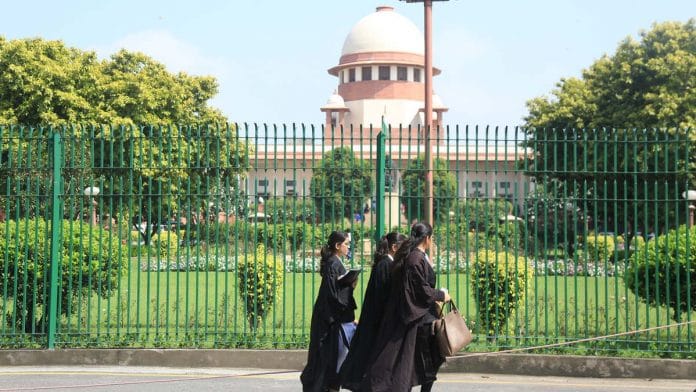New Delhi: The Supreme Court Tuesday issued notices to All India Muslim Personal Law Board, Central Waqf Council, Maharashtra Waqf Board, the Ministry of Minority Affairs and the National Commission of Women on a petition filed by a Muslim couple, challenging the ban on entry of women in mosques.
The Bench of Justices S.A. Bobde and S. Abdul Nazeer clarified that notices were being issued only because of the Supreme Court’s 2018 verdict in the Sabarimala matter.
Sabarimala verdict
In September 2018, the apex court in a 4:1 majority had allowed women of menstruating age to enter the sanctum sanctorum of the Sabarimala temple.
Justice Indu Malhotra, who was the only woman on the bench, had opposed the entry of women in the temple.
“The issues raised in the present Writ Petition have far-reaching ramifications and implications, not only for the Sabarimala Temple in Kerala, but for all places of worship of various religions in this country, which have their own beliefs, practices, customs and usages, which may be considered to be exclusionary in nature,” Justice Malhotra had noted in her dissent.
“In a secular polity, issues which are matters of deep religious faith and sentiment must not ordinarily be interfered with by Courts,” she had added.
Also read: Muslim women group’s manifesto wants political parties to make law against mob lynching
Pune-based couple had filed the plea
Yasmin and her husband Zuber Peerzade had filed the petition in the Supreme Court, seeking an order allowing the entry of women in all mosques.
In the petition, the couple submitted that prohibiting women from entering mosques is discriminatory and violates fundamental rights.
The petition stated there was nothing in the Quran or in any teachings by Prophet Muhammad that opposed women from entering mosques and offering prayers.
At present, women are allowed to offer prayers only under mosques coming under Jamaat-e-Islami and Mujahid denominations. However, they are barred from entering mosques that fall under Sunni denominations.
Also read: Contrary to belief, Muslims listen to Ulema but not when it comes to their election fatwas






